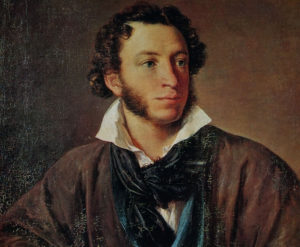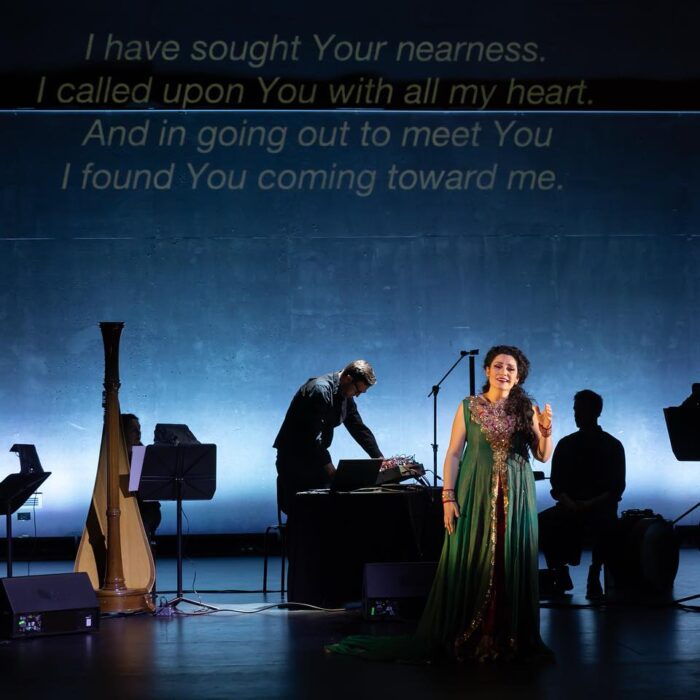
Tchaikovsky, Rimsky-Korsakov & The Other Composers Influenced By Alexander Pushkin
By David SalazarAlexander Pushkin is one of the greatest authors in the history of the world. He is also one of the writers who has had the greatest impact in the world of opera.
Perhaps only such authors as Victor Hugo or William Shakespeare have seen as many of their works adapted to the opera stage as has Pushkin. And while those other two giants have been adapted by composers the world over, Pushkin, born on June 6, 1799, has been a particular creative boon to his fellow countrymen.
Here is a look at the operas based on Pushkin’s work.
Tchaikovsky Operas
Let’s lump Tchaikovsky’s operas into one subgroup. Russia’s most famous composer was repeatedly inspired by his nation’s famed scribe in no fewer than three operas. The most famous of these is “Eugene Onegin,” but Tchaikovsky also set Pushkin’s “The Queen of Spades” and “Mazeppa” for the opera stage.
In the case of “Onegin,” Tchaikovsky set the libretto himself. “Queen of Spades” is based on a short story, while “Mazeppa” originates with the poem “Poltava.”
Cui Operas
Cesar Cui also adapted many Pushkin works for his own operas. His earliest adaptation was “Prisoner of the Caucasus,” which is based on Pushkin’s poem of the same name.
“A Feast in Time of Plague” is essentially a word-for-word adaptation of a play of the same title. The story is part of Pushkin’s four “Little Tragedies.” Pushkin created the work in 1830 and Cui’s opera came 70 years later in 1900.
Cui also adapted “The Captain’s Daughter” from a Pushkin novel of the same name.
Rimsky-Korsakov Operas
Of course, the great Russian composer would take his lead from his countryman. In fact, Rimsky-Korsakov adapted three operas based on Pushkin works, all rather well-known.
“The Golden Cockerel” came from Pushkin’s 1834 poem “The Tale of the Golden Cockerel.” He also adapted Pushkin’s “Mozart and Salieri,” and “The Tale of Tsar Saltan.”
Dargmyzhsky
The rather obscure Russian composer based two works on Pushkin, including “Rusalka” and “The Stone Guest.” The former has slowly grown in favor due to the Russian interpretation of the Bel Canto style. The latter was completed by Cui and Rimsky-Korsakov.
Rachmaninoff Operas
The famous pianist left the world with two operas based on the famed poet’s works. “Aleko” is perhaps the better known of the two. “The Miserly Knight,” which is famous for including five male voices but no females, was based on a drama of the same name.
Dubrovsky
Another rarely heard opera, this one by Eduard Nápravník, was based on a novel of the same name.
Ruslan and Lyudmila
Pushkin’s 1820 poem served as the basis for Glinka’s most famous opera, which he composed between 1837 and 1842. Of all the operas on this list, this is the earliest of the repertory staples.
Mavra
Stravinsky’s opera buffa was also adapted from a Pushkin work, this time “The Little House in Kolomna.” The opera is only about 25 minutes long and the libretto is by Boris Kochno.
Zingari
The only non-Russian on this list, Ruggiero Leoncavallo’s opera is based on the narrative poem “The Gypsies,” which Pushkin published in 1827.
Boris Godunov
Thought I forgot this one? For many, Russian’s greatest opera is most definitely an adaptation of Pushkin’s work. Pushkin’s play on the subject was actually considered a “closet play,” or never intended for performance. He did publish it in 1831, but it was not approved by censors until 1866.


